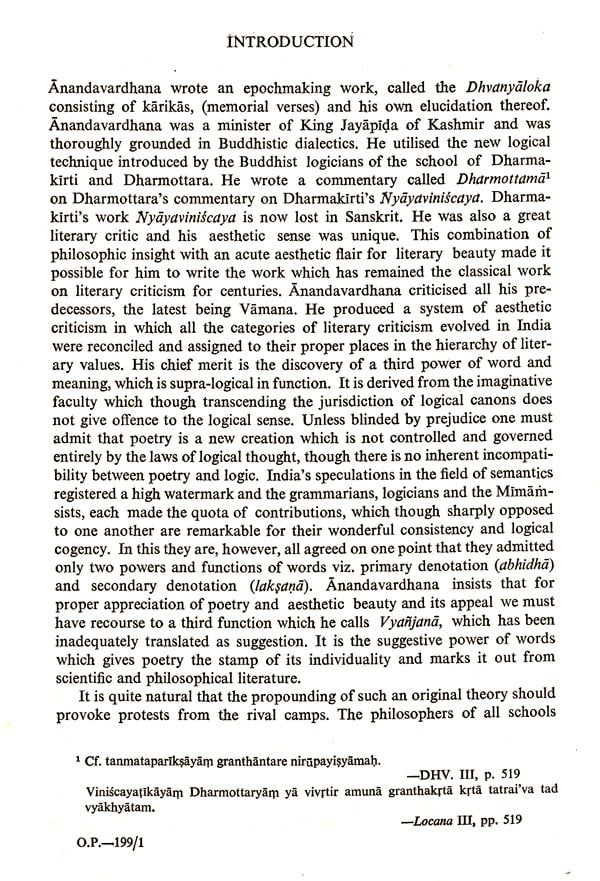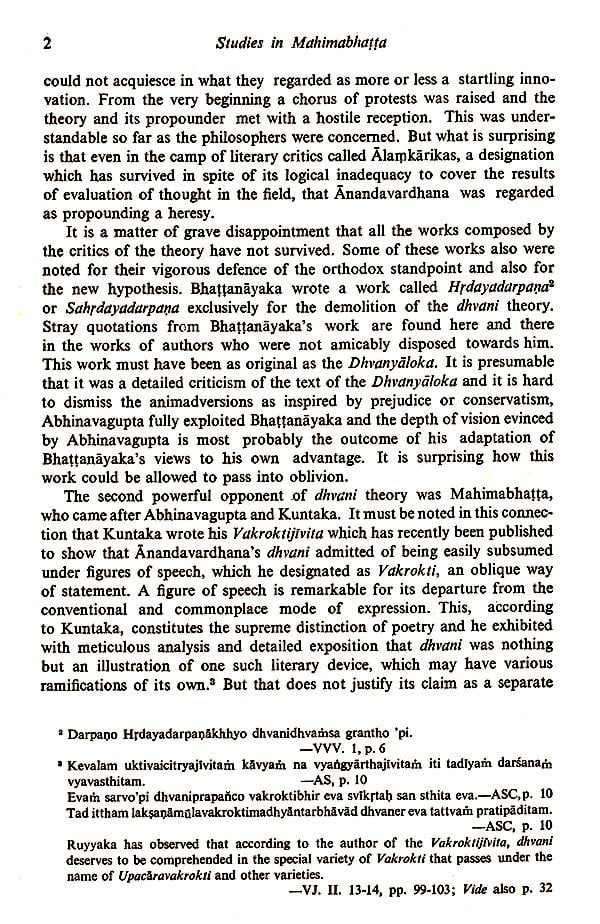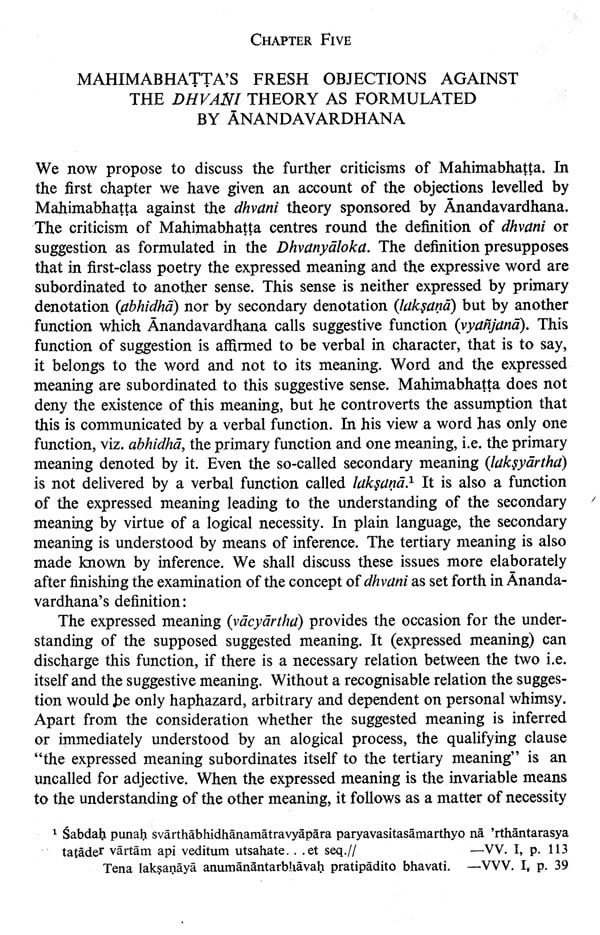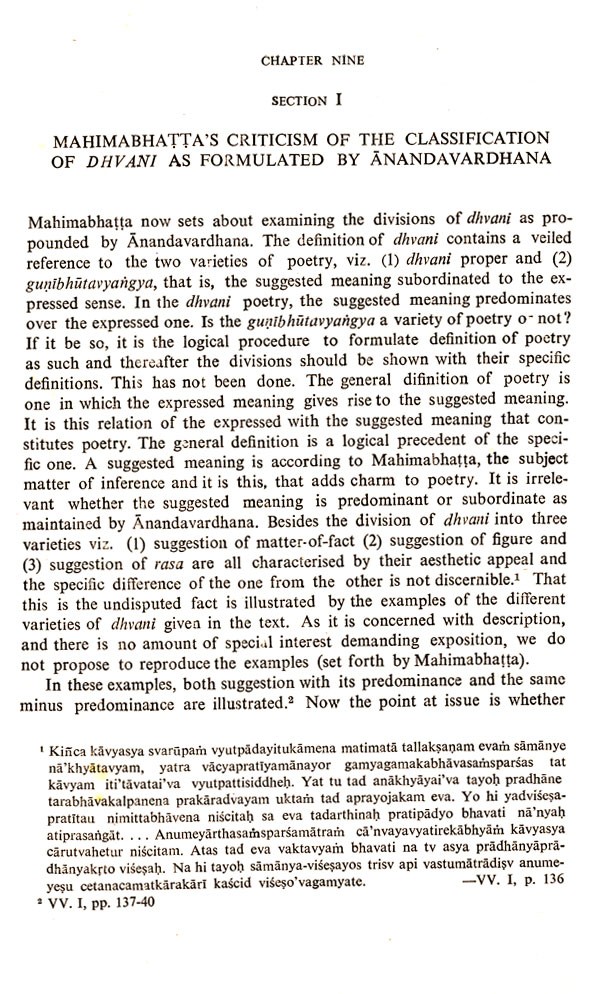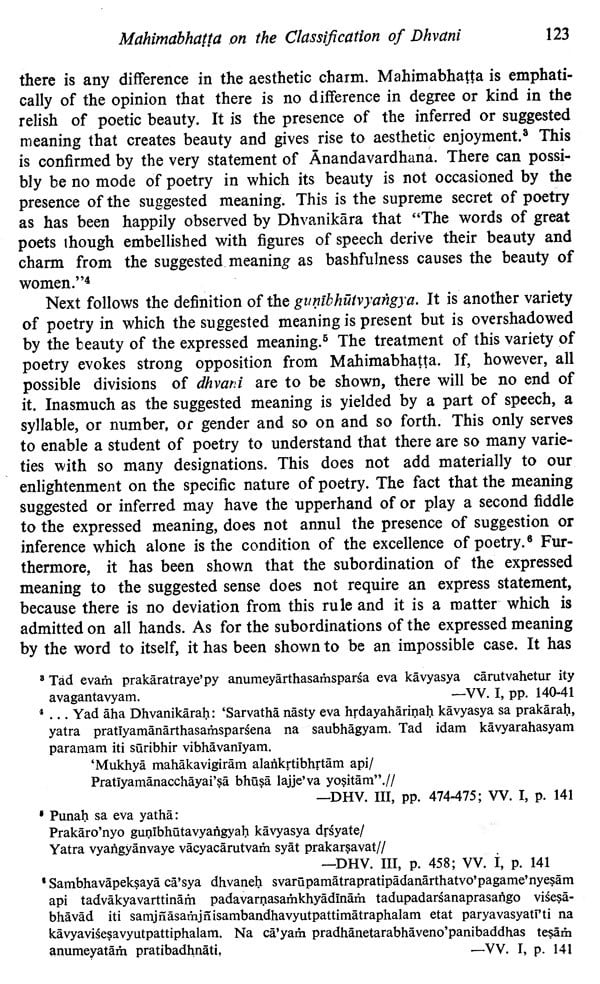
Studies in Mahimabhatta (An Old and Rare Book)
Book Specification
| Item Code: | AZA484 |
| Author: | Amiya Kumar Chakravorty |
| Publisher: | University of Calcutta |
| Language: | English |
| Edition: | 1975 |
| Pages: | 145 |
| Cover: | PAPERBACK |
| Other Details | 9.5 x 6.1 inches |
| Weight | 190 gm |
Book Description
Rājānaka Mahimabhațța was a Kashmirian Brahmin and was a man of extraordinary talent. He had an unusually acute logical intellect and also an aesthetic taste and power of discrimination of high order. The Vyaktiviveka is the only work of his, which has survived and this alone is sufficient to make him a favourite of the literary critics. The book sparkles with wit and ingenious sallies, demonstrating the author's remarkable capacity for imparting original turns and twists to the argument. The work bristles with difficulties which have made it a veritable bugbear to students of soft intellect and ease-loving amateures. Another circumstance has added to the intractability of the text. There is no running commentary on it. Ruyyaka's comments are laconic and mainly directed to the criticism of Mahimabhatta's theory. The commentator is not at all loyal to the original author. But he has done a good service to the dhvani theory. The commentator is rather a critic than an expositor.
The Vyaktiviveka is a monument to the author's genius. It is not however, as compact as the Kāvyaprakāśa of Mammațabhațța. Mammața is the most fortunate in his commentators. Every scholar worth the name wrote a commentary on the Kāvyaprakāśa and it was regarded as the yard-stick of scholarship. But Mahimabhatta had no admirer or loyal adherent. Fortunately, a few manuscripts were preserved in South India and we must all be grateful to the late MM. T. Ganapati Šāstri for the editio princeps. Mahimabhatta's style of composition is peculiar. He makes long digressions and introduces topics which have little bearing on the central theme. For instance, his disquisition on the connotation of substantives as action (kriyā) is a brilliant performance, but has rather an episodical character. If it were omitted it would not affect the unity of the work. Of course, his theory on this matter is entitled to serious consideration. He shows his ingenuity and originality in excelsis. The entire second chapter is also episodical. But his dissection of the literary defects is characterised by his wonderful ingenuity reinforced by compelling logic. The author is original from top to toe.
Another feature of this work is the author's long summary in verse of the problems discussed. This makes repetitions inevitable. But it must be admitted that these summaries serve the purpose of an illuminating commentary. In our exposition of Mahimabhațța's texts we dare not omit these portions in the interest of clarification.
Mahimabhațța himself is aware of this aspect of diversification. He compares his work to the preparation of a delicacy by a skilful cook which is made covetable by diversity of flavours.1 This comparison is apt and apposite. The episodical matters, though they interrupt the uniformity of texture, impart diversity and variety.
Prof. Amiya Kumar Chakravorti has rendered a unique service to the cause of Sanskrit Scholarship by this work Mahimabhațța's Vyaktiviveka. The Vyaktiviveka has proved a veritable bugbear even to students of extraordinary intellect and unflagging perseverance. The commentary of Ruyyaka is rather a critique than an exposition. As a commentator he is not loyal to Mahimabhațța. His commentary though of a short compass is rather of the nature of a Vārtika.
The discovery of this unique work and its editio princeps are bound to remain distinctive landmarks in the history of Alamkāra literature. Dr Chakravorti has taken enormous pains to throw light on the tangled test. I trust that curious students will be more than recompensed by study of Dr Chakravorti's work and of the original text pari passu. He has harnessed all his resources to the elucidation of this work. Mahimabhațţa is more maligned than understood. Mammațabhatta's discourse on literary defects in the Chapter VII of the Kāvyaprakāśa is a brilliant masterpiece. But this brilliance is almost entirely derived from Mahimabhatta's work.
I introduce the work of Dr Chakravorti to the academic world with the hope and confidence that it will meet with due appreciation.
**Contents and Sample Pages**
